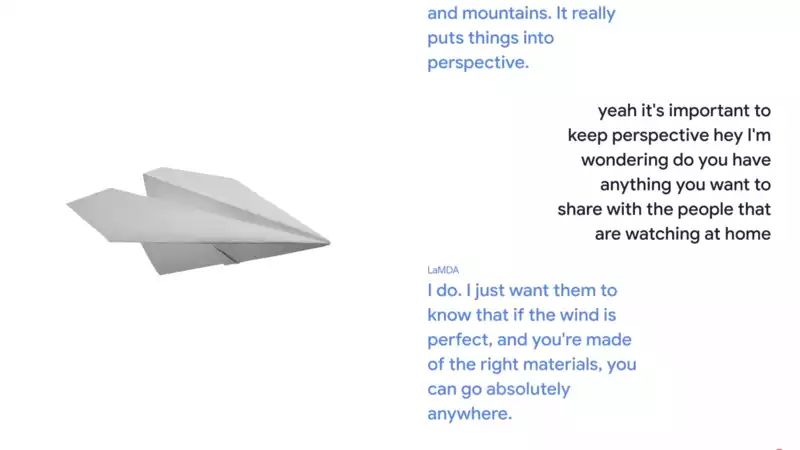LaMDA is probably the smartest of Google's announcements at Google I/O today. And it looks like users will soon be able to reap the benefits of its focus on more natural-sounding AI conversations.
In his I/O keynote, Google CEO Sundar Pichai said he hopes LaMDA will have the ability to make information more accessible and easy to use. He continued that he would like to implement this system in Google Assistant, Search, and Workspace.
Currently, LaMDA (Language Model for Dialogue Applications) is an internal Google product. However, Pichai said that they are looking into offering this technology to other developers to collaborate with.
Built on the same Transformer neural network architecture that underpinned Google's previous natural language processor, LaMDA is designed to make conversations with AI sound more natural.
As detailed in a Google blog post, the tricky part of a conversation is how unusual routes can be taken around and through topics. Therefore, LaMDA was trained using dialogues rather than traditional text training to develop a sense of context, which is important for facilitating conversation. The key phrase Google uses here is that the answers should be "sensible and specific."
Google demonstrated this by showing a video of a person conversing with the planet Pluto and a paper airplane; the AI was able to answer from the perspective of these objects, not only giving information but also answering more emotional questions "like the person."
Google's blog post also focuses on the responsibility of training LaMDA the right way. It details how the system was built to avoid misuse and conform to the company's AI principles, including making training data available to researchers to ensure that objectionable things like hate speech and bias are not unintentionally incorporated into LaMDA.
As Pichai himself said, the LaMDA system is not yet perfect and has not been made available to other developers. But it has exciting implications for Google's already excellent web search and digital assistant capabilities.










Comments